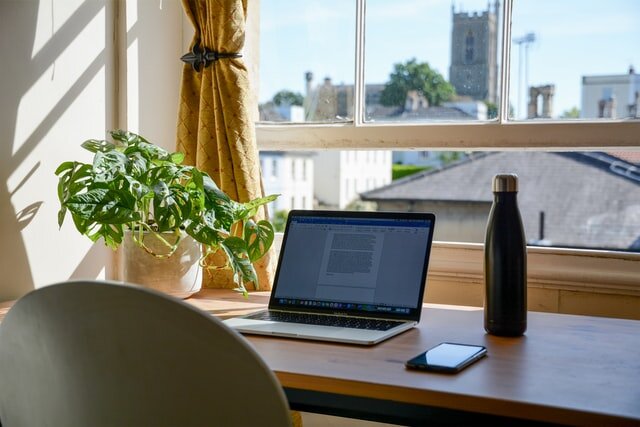There’s no debating that the nature of work has changed, drastically. The effects of the pandemic are far reaching, and aren’t simply going to disappear. The sudden need to enable telecommuting and remote work has provided golden opportunities for employees and employers alike.
Here’s the thing though. Most of what we experienced during the COVID-19 era of work isn’t really “new” by any stretch of the imagination. Remote work isn’t new, it’s been around for ages. The pandemic just made it a widely adopted way of doing business. The Digital Transformation we’ve been talking about for the last 18 months isn’t a revolutionary new concept, it’s just something we’ve sped up by a factor of 12 or so (using Satya Nadella’s math).
We’ve Reshaped The Future of Work
Here’s the thing. Millions of people have experienced work from home. Based on the research coming out, I’m comfortable making a conservative estimate:
The majority of people that started working remotely experienced the same or better productivity, while enjoying newfound flexibility.
Side note: The “majority” in that sentence means more than 50%, conservatively. Though I feel that number is plenty higher.
What do I mean by that? It’s simple. We’ve disproven the idea that remote work has a negative impact on productivity. In fact, in many cases, companies and people have seen an increase in productivity as they participate in this new work from home experiment.
I think there’s a few key factors driving this result:
-
Better Focus When working on individual tasks, I do it best at home. Why? Because I can put in my Galaxy Buds, play some “focus tunes” (for me, that’s LoFi Hip-Hop), and crank away. For really intense things, I’ll go on DnD in Teams (so I can still be reached if it’s urgent, but people know I’m focusing) and close Outlook. I won’t have anyone doing “drive-bys” at my desk breaking my focus cycle.
-
No Commute When I commute, depending on traffic, it takes me about 30 minutes to get to the office, and about the same to get home. That’s an hour a day that I’ve replaced with morning & afternoon tasks (for me, that’s usually catch up on email and plan the next day).
-
More Intentional Collaboration When I need to collaborate, I have to be more intentional about it. I can’t walk over to someone’s desk or office and see if they have a quick 10. I need to check their status on Teams, ping them to see if we can hop on a call, etc. For something that needs more focused thought, I schedule a meeting. I’m even getting better at including agendas 🙂. This means that when we’re collaborating, we’re always doing so with a distinct purpose.
-
A More “Personal” Space I’m a total geek. I’ve spent quite a bit of time setting up my home office just the way I want it in terms of monitors, where my mic is, where things live on my desk, etc. I have a lot more flexibility within my private home office than I do at the company office. In the end, I’ve created a pretty relaxing space that lets me “dive in.” I also got myself a nice chair and I never have to worry about sharing it (weird quirk of mine).
-
Personal Benefits There’s some “personal” benefits to remote work too that I’m enjoying. For example, when I finish working, that dropping of the commute gives me an extra hour with my family. I cook dinner at home much more than I used to, and do much more around the house.
For me personally, all of these things have added up to a better employee experience. I get more done, feel a little bit more accomplished, and have more personal time to myself outside of work. However, there are some “cons” if you want to call it that (perhaps some of these are just gripes).
Here’s some slightly negative impacts I’ve noticed. I’ll try to share my perspective from where I sit today as a people leader, and as an individual contributor (in implementation engineering):
-
More Intentional Collaboration But Dom, you just dropped that in the pros monologue. It can be both! More intentional collaboration has had it’s upside, but it has it’s downfalls too. I find myself sometimes missing the “chill” talks I used to have with my team. You know, that how was your weekend, and “watercooler” conversation. The fix for this has been “more intentional socializing” where we have virtual happy hours and virtual commutes dedicated to non-work conversations.
-
Meeting Fatigue This is a real syndrome. I didn’t think it was, but boy have I learned. When we have to be more intentional about collaboration, we have to schedule more meetings. Sometimes we get carried away and next thing you know we’re booked solid and have very little time to actually do the work. This has been a trickier one to fix but I’ve found that blocking “Focus Time” helps here. I let Microsoft 365 do that for me automatically, and at the beginning of the week I try to map out what I’m going to be doing during each focus time.
-
Less Efficient Collaboration I didn’t even notice this was an impact until some of our restrictions were reduced and I brought some team members into the office (on a volunteer basis) for planning meetings. I work with a team that’s constantly innovating. We’re in a growth phase so we’re doing a lot of scalability exercises in addition to meeting demands for new services. We had half day planning meetings in certain service categories to flatten some services and improve processes. I feel like we achieved more in 4 hours + lunch that we would have over several different Teams meetings (being able to whiteboard on a Surface Hub helps too). So, in that way, I’ve learned that meeting in person with a set goal is incredibly efficient and powerful.
Enter Hybrid Work
I feel like I’ve done a decent job illustrating some pros and cons of remote work. For me personally, I love remote work a lot of the time, but feel the need to be in person sometimes. I’m very confident I’m not alone in this, because this hybrid conversation has been booming. So, let’s talk about it.
All Hybrid work really means (for me) is that I’m at home (most of the time) and in the office (some of the time). I use the right work model for the right scenario. By having that flexibility, I’m able to do my best work – and empower my team to do theirs – by working when, where, and how I need to. Fortunately, I work at a born in the cloud company. Our internal technology just works when and where I need it to (given I have internet).
If you’re starting a business, or looking to evolve yours, build it around flexibility. Think about secure technology that just works, a culture that empowers teams to work how the want/need to, and have a plan that supports physical and remote collaboration. That third one can be tricky, but perhaps just a meeting room rental service would do the trick.
Distributed Workforces
This topic in particular did not dawn on me until I became a people leader on a growing team. Remote work has empowered us to do something fantastic: extend our talent pool beyond our office’s geographic location. This has two key benefits I want to call out:
-
Expand Available Talent. Our field is very competitive. It’s even more competitive than average where we’re located (the Denver area). By being able to hire nationwide, I can welcome excellent new team members regardless of where they live. This allows us to have a team with greater diversity (personally and professionally) while meeting our needs as a business unit. It’s a win-win for all.
-
Empower More People. This is something I’m becoming more and more passionate about. I’ll use Pax8’s Rural Empowerment Program as an example. We have an office in Florence, CO (~2 hours from Denver). In that area, tech jobs used to be essentially non-existent (save for military type jobs). Through some partnerships, we’ve found some incredible folks who now works for us driving awesome new initiatives. That wouldn’t happen without a distributed workforce model. We’re also speaking with candidates in new parts of the country that are definitely “not known for tech.” If we all work together here (meaning all of us tech companies), we can create good-paying tech jobs literally anywhere.
In Summary
To sum it up, I don’t think remote work is the future. I don’t think in the office work in the future. I think the future of any industry that supports remote work is a collection of hybrid, distributed workforces. It allows for a better employee experience, a better employer experience, and makes it so much easier to build broader teams of smart people from different backgrounds. What are your thoughts on the future of Modern Work?
Photo by Mikey Harris on Unsplash



